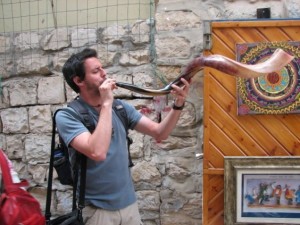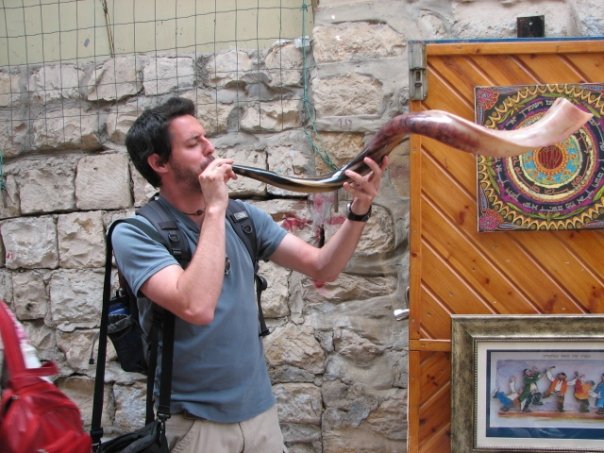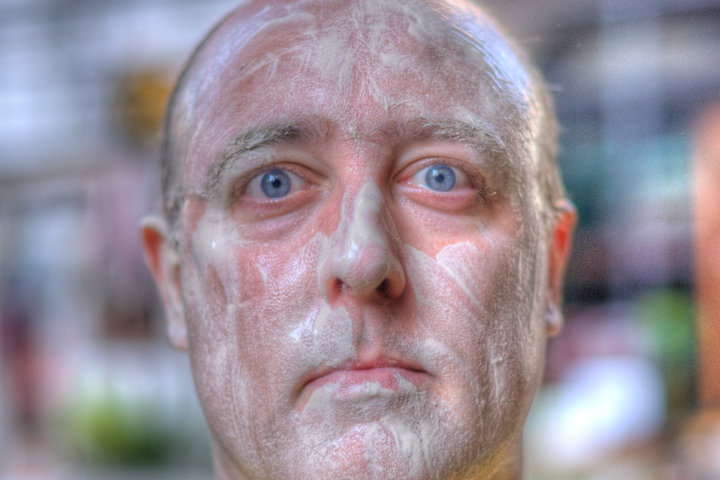
When Alan Perlman is not trotting around the globe as a cost-of-living surveyor, he lives in Boston, Massachusetts and spends his time reading, relaxing, and scheming up entrepreneurial ventures. When I first heard about Alan’s job, I had to know more. How do you get paid to explore the world for weeks at a time? Read on for an interview with Alan about how he landed this unique job and what it entails.
You can read about Alan’s travels and life developments on his blog, The 9 to 5 Alternative, or reach him on Twitter at @alanperlman.
Maiden Voyage: What exactly is a cost-of-living surveyor?
Alan Perlman: My company helps international organizations (private companies, not-for-profits, governmental bodies) design and support their expatriate programs. Say you work for Coca Cola, and they ask you to move with your family from New York to Buenos Aires on a three-year assignment (this happens quite often with global organizations). Your salary and benefits will be different in Buenos Aires, because the cost-of-living there is different. A cost-of-living surveyor, in this sense, collects the data necessary to justify salary and benefit changes. I travel to different cities around the world and collect prices.
AP: Sheer luck, really. It was the tail-end of college and I was talking to a friend of mine about business aspirations and travel passions. Turns out that my friend’s brother, who worked for the company, was in town for the holidays and I met him for coffee. Six months later and I moved to Boston! I started in July 2008, so as of this January I will have been traveling as a surveyor for 1.5 years, which means six different survey trips, each four to seven weeks long.
AP: I’m glad you asked this question, because this is still something I struggle with every time I’m on the road. When I first started, I wasn’t efficient at gathering information, so often I found myself pulling 10 to 15 hour days and having virtually no vacation time on the road. In places like Russia and China, where permission issues and language barriers are more of an issue, this continues to be the case. However, as I developed a knack for the work, I’ve found that I can generally spend at least some free time in most cities that I survey. Some surveys are much easier than others—Damasucs, Syria; Tirana, Albania and Accra, Ghana come to mind. Variables like product availability, communications infrastructure (use of Internet and phone), and geographic layout affect how much free time I have.
AP: Half of what I collect are goods and services prices, anything from women’s panties to granulated salt. The other half involves meeting with real estate agents and finding out what expatriate-appropriate rental units are available and what’s been going on the real estate market. Through these conversations I often learn a lot about expatriate life. This is how I discovered the Hash House Harriers, a social, non-competitive club of runners that meet up in different cities around the world.
Also, it’s always interesting to see what products end up on the shelves of Nigerian supermarkets or in Middle Eastern malls. A few random things that you can find just about everywhere: Jack Daniels (and other well-known alcohols), Marlboro cigarettes, Coca Cola, Benetton clothing, TGI Fridays and the Economist/Time/Newsweek magazines.
AP: Anchorage, Alaska — beautiful scenery, ample outdoor activities, incredibly friendly and cozy city.
Damascus, Syria — the Old City is remarkably vibrant and bustling, lots of good food and shisha
Tirana, Albania — one of the most welcoming places I’ve been, small and walkable, great Mediterranean food
Amman, Jordan — wild Middle Eastern city with lots of nightlife, also got to see Petra here!
MV: Are there any tips you would like to pass along to other young world travelers?
AP: Stay nimble and flexible on the road. Talk to as many people as possible, both before you leave and while you are traveling. The more research I do before visiting a particular city, the more I end up enjoying myself. Tools like Couch Surfing and Twitter have connected me with some amazing people around the world, and by taking a risk and meeting seemingly random people, I’ve often had the most wild and interesting experiences.
Oh, and in places where you don’t speak the language, positive body language and a smile go a long way.




